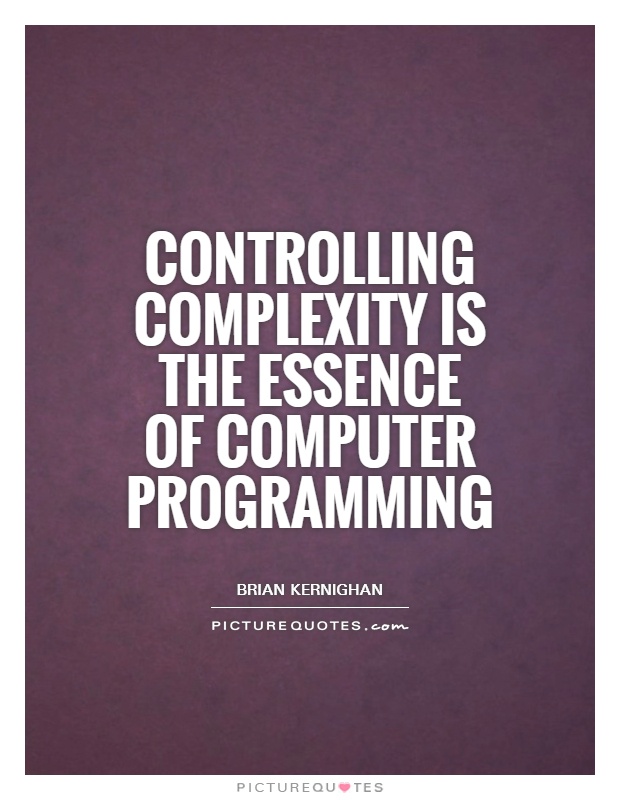Controlling complexity is the essence of computer programming

Controlling complexity is the essence of computer programming
Brian Kernighan, a renowned computer scientist and co-author of the seminal book "The C Programming Language," once famously said, "Controlling complexity is the essence of computer programming." This statement encapsulates the fundamental challenge that programmers face when designing and implementing software systems. In the context of Kernighan's work and contributions to the field of computer science, this idea takes on even greater significance.Kernighan's emphasis on controlling complexity speaks to the core principle of writing clean, maintainable, and efficient code. As a pioneer in the development of programming languages and software tools, he understands the importance of managing the intricate interplay of variables, functions, and algorithms that make up a computer program. By keeping complexity in check, programmers can ensure that their code is easy to understand, debug, and modify, leading to more robust and reliable software systems.
One of Kernighan's key contributions to the field of computer programming is his advocacy for simplicity and elegance in code design. In his book "The Practice of Programming," co-authored with Rob Pike, he emphasizes the importance of writing code that is clear, concise, and easy to follow. By adhering to best practices and avoiding unnecessary complexity, programmers can create software that is not only more efficient but also more maintainable in the long run.
Moreover, Kernighan's work on programming languages such as C and AWK has had a profound impact on the way software is developed and maintained. By providing programmers with powerful tools and techniques for managing complexity, he has helped to shape the way modern software systems are designed and implemented. His insights into the art and science of computer programming continue to inspire generations of programmers to strive for simplicity, clarity, and elegance in their code.












 Friendship Quotes
Friendship Quotes Love Quotes
Love Quotes Life Quotes
Life Quotes Funny Quotes
Funny Quotes Motivational Quotes
Motivational Quotes Inspirational Quotes
Inspirational Quotes